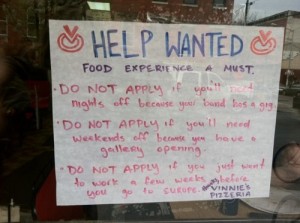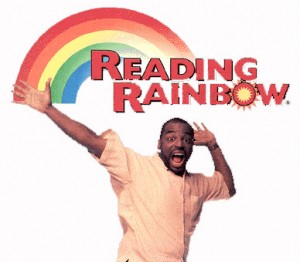Arthur Posey is a retired high school guidance counselor and freelance blogger specializing in issues that relate to education (including education reform, TEFL and the importance of vocational schools). When he’s not writing, you’ll probably find him rafting his favorite rivers or fixing up his motorcycle.
A few short decades ago, all it took to land a decent job was a high school diploma or a GED.
Flash forward a few decades to 2013:
In the last ten years, the price of higher education at a four year university has risen drastically. According to an article on CNN.com, tuition at private nonprofit four-year colleges has risen by 60% in the last decade. That’s nothing compared to public four-year colleges, whose tuition rates have increased by 104% in the same amount of time. It’s hardly a surprise that student debt has surpassed credit card debt for the first time in history, with over $1 trillion owed by students. Meanwhile, the job market continues to shrink. College graduates are having a harder time finding jobs that have anything to do with what they studied in college.
So what’s one solution to this problem for people who find themselves unemployed? Trade school.
For years now, higher education has been framed as a necessity, as opposed to an option – and now the American economy is suffering a shortage of skilled workers. The shortage stems from the cultural emphasis on the importance of attaining an undergraduate degree, combined with the social stigma associated with trade schools; culturally speaking, highly trained blue-collar workers (plumbers, carpenters, welders, etc.) are often looked down on by their white-collar counterparts, despite the fact that they often make more money than the average college graduate.
According to an article posted on Forbes.com back in May, there’s a growing deficiency of skilled workers in the United States. Our economy needs skilled electrical technicians, boilermakers, crane operators, masons, plumbers, power line technicians and pipefitters. The article on Forbes.com goes on to explain that the gap will only increase in the near future, since many of the people who currently hold these positions are approaching retirement age. If we don’t do something soon, we’re going to see a labor scarcity that could significantly damage the American economy. What people don’t seem to realize is that we’re not going to fix that labor shortage by sending more kids to university.
In a bad economy, having a trade or vocational education is better than having a traditional 4-year degree, for a number of reasons:
1. Trade school takes less time to complete. It takes most people four years to earn their undergraduate degree – it only takes an average of two years to finish trade school. This means you’ll spend less time in the classroom and more time getting valuable hands-on experience.
2. Learning a trade is cheaper than an average education at a four year college. A recent statistic cited on CNN Money said the class of 2013 will graduate with an average $35,200 in student loan debt. That is an absolutely astronomical amount, considering the high unemployment rates amongst recent graduates. Unless you’re one of the lucky few who went to school on a full-ride scholarship, paying for college can be a lifelong endeavor.
3. America needs skilled workers. The current shortage of skilled labor is adversely affecting the economy. Trade school can fix this—students who complete trade school are ready to immediately enter the workforce. They have the skills and know-how to fill the rising demand for skilled workers, which is a huge advantage in an economy where undergraduate degrees are barely worth the paper they’re printed on.
Americans are tired of the higher education system. People are looking for ways to better themselves that don’t require massive investments of time and money. Vocational education could be the answer they’re looking for. If we want to help get the American economy back on track (that is, if we want to fix the labor shortage and stop outsourcing blue collar jobs overseas) without sacrificing ourselves, our time and our money on the altar of higher education, we need to start promoting other, often marginalized options like trade school.
****
Check out more of Arthur Posey’s writing on alternative education:
Inspiration Avenue: The Myth of Higher Education
Uncollege: Vocational Schools: A Great Alternative

 As an autodidact, you have to structure the majority of your life and education yourself. And this freedom, as beneficial as it is, can get get overwhelming and quickly cause you to lose focus. Not only do you have to come up with your own to-do lists, structures, schedules, deadlines, etc. – you have to do them, and then you have to check behind yourself and track your progress in a way that you can tell you are moving closer to your goals. I don’t know about you, but I find myself getting distracted from doing all of that; essentially, you are assuming the roles of student, all your professors, and sundry record-keeping faculty at a University.
As an autodidact, you have to structure the majority of your life and education yourself. And this freedom, as beneficial as it is, can get get overwhelming and quickly cause you to lose focus. Not only do you have to come up with your own to-do lists, structures, schedules, deadlines, etc. – you have to do them, and then you have to check behind yourself and track your progress in a way that you can tell you are moving closer to your goals. I don’t know about you, but I find myself getting distracted from doing all of that; essentially, you are assuming the roles of student, all your professors, and sundry record-keeping faculty at a University. General education – may I ask what the point is?
General education – may I ask what the point is? 1. I was inspired to write because of Laura Ingalls Wilder. She wrote the Little House books, incase anybody was a little clueless about that.
1. I was inspired to write because of Laura Ingalls Wilder. She wrote the Little House books, incase anybody was a little clueless about that.  2. I was inspired by coming across the television show “The Dog Whisperer” at one point, seeing how Cesar Millan formed a pack of dogs using his knowledge of the origins of canine behavior. At first I was just interested in dogs, but that branched off into a very large obsession with wolves. I have now read extensively about them, and have two internships planned for the near future at a couple of fantastic wolf refuges.
2. I was inspired by coming across the television show “The Dog Whisperer” at one point, seeing how Cesar Millan formed a pack of dogs using his knowledge of the origins of canine behavior. At first I was just interested in dogs, but that branched off into a very large obsession with wolves. I have now read extensively about them, and have two internships planned for the near future at a couple of fantastic wolf refuges. 3. Probably the biggest jump I made from the point of being inspired till the peak of intense study is exercise science. It all started while watching the Winter Olympics in February 2006. Developing a slight crush on figure skater Johnny Weir, I watched all his events; and, after the Olympics, started to watch figure skating more. There were little blips on the skaters during these events, in which they often talked about the training and cross training they put into their sports. I had just started swimming a few months before, and I had a brainstorm that I could cross train myself to become a better swimmer. This grew into watching Fit TV very frequently, along with getting many exercise science, workout, nutrition, etc., books from the library. While I don’t study it as intensely as I did at that certain point of my life, the knowledge continues to carry over into whatever I am doing, and I have not completely ruled out becoming a personal trainer one of these days.
3. Probably the biggest jump I made from the point of being inspired till the peak of intense study is exercise science. It all started while watching the Winter Olympics in February 2006. Developing a slight crush on figure skater Johnny Weir, I watched all his events; and, after the Olympics, started to watch figure skating more. There were little blips on the skaters during these events, in which they often talked about the training and cross training they put into their sports. I had just started swimming a few months before, and I had a brainstorm that I could cross train myself to become a better swimmer. This grew into watching Fit TV very frequently, along with getting many exercise science, workout, nutrition, etc., books from the library. While I don’t study it as intensely as I did at that certain point of my life, the knowledge continues to carry over into whatever I am doing, and I have not completely ruled out becoming a personal trainer one of these days. I very often feel like there is some unspoken unschooler competition to one-up each other in what amazing, epic adventures we all can have in as short amount of time as possible. I am quite certain I am not the only one who feels this, but I could be wrong.
I very often feel like there is some unspoken unschooler competition to one-up each other in what amazing, epic adventures we all can have in as short amount of time as possible. I am quite certain I am not the only one who feels this, but I could be wrong.

